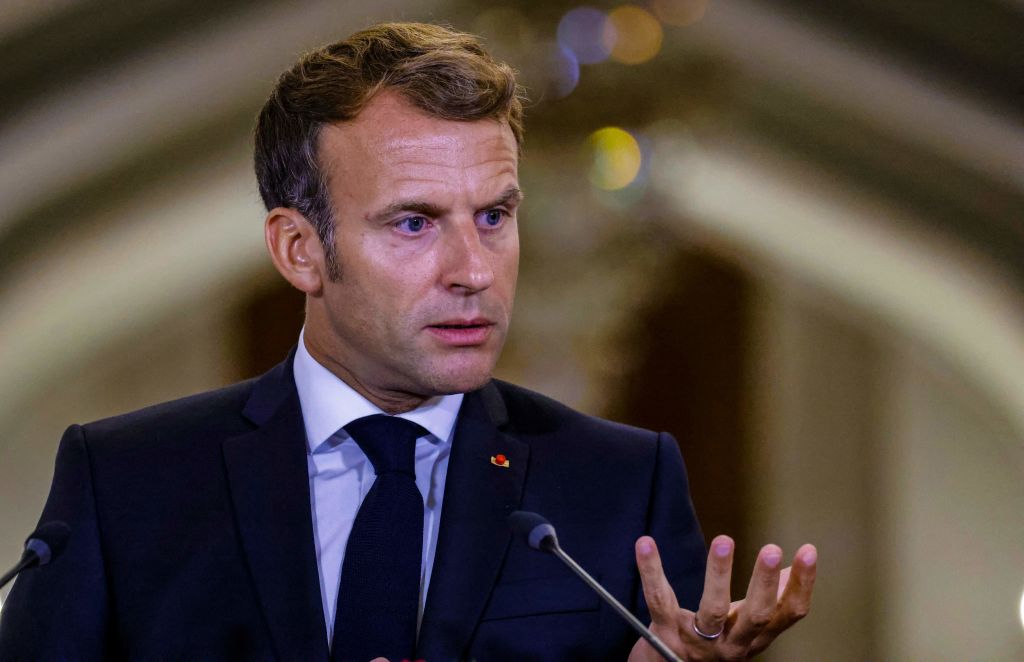Emmanuel Macron is about to activate his Plan B. If he cannot control the National Assembly after the current round of legislative elections, he will simply bypass it, creating a new “people’s assembly” with which he might appear to consult the French. This would obviate the need to refer or defer to the elected members of the National Assembly, for which he’s never had much respect.
On Sunday night’s talk shows, Macron’s team were already explaining how such a body would keep him “in touch” with voters should the actual elected politicians in the actual Assemblée decline to co-operate with the president. There was, perhaps surprisingly, no pushback against such an idea, which might seem to be treating democracy with a certain lassitude.
This is all strongly reminiscent of the Great Debate organized by Macron early in his first term, in which he flew around the country delivering lengthy soliloquies to local worthies. This was an effort to divert attention from the insurgent gilets jaunes and was, with the collaboration of the media, largely successful. He also organized a now-forgotten “people’s assembly” on climate in 2019, before ignoring much of what the people proposed.
Plan B may be necessary because the first round of voting in the 577 constituencies on Sunday produced a poor result for Macron, whose candidates won an unimpressive 25.7 percent of the vote, not enough to guarantee the President’s Ensemble coalition an Assembly majority in the second round of voting next Sunday.
Finishing on the same 25.7 percent was nevertheless considered an excellent result for La Nouvelle Union Populaire Écologique et Sociale of Jean-Luc Mélenchon, the ultra-left coalition, including communists, ecologists, socialists and Mélenchon’s own bespoke movement, La France Insoumise. “The President’s party is defeated,” declared Mélenchon last night, although the race isn’t quite over yet. Twenty-six percent is not quite a ringing endorsement of Mélenchon’s voodoo economic program, which promises earlier retirements, higher minimum wages, free organic school meals and capped energy and food prices. Many are apparently voting for him simply because they can’t stand Macron. Few can explain how any of this could be paid for.
In third place on Sunday were the candidates of Marine Le Pen’s Rassamblement National, at 18.7 percent, fourth the centrist Les Républicains, at 10.4 percent, fifth Éric Zemmour’s Reconquête at 4.2 percent, with fringe parties mopping up the rest.
It remains impossible to precisely translate these voting estimations into seats, which won’t be divvied out until next week’s second round of voting. It’s now once again a choice between Macron and someone arguably worse, this time an extremist of the left. There’s no chance that Mélenchon’s alliance can gain a majority in the 577-seat Assembly, but it might still deny Macron a majority and force him into uncomfortable cohabitations with the Republicains to pass legislation.
Neither is Mélenchon’s alliance necessarily stable since the left is always at war with itself. For France, none of this is a recipe for political tranquillity. The uncontested winner of the first round of voting in the National Assembly elections was surely abstention. Macron will be hoping he can persuade some of these absent voters to turn out next Sunday. But his uninspiring prime minister, Elisabeth Borne, whose wooden technocratic mien impresses nobody, won’t charm undecided voters.
The soaring cost of living, Macron’s desire to humiliate Ukraine at the expense of Putin, the shenanigans at the Stade de France (where all the video has mysteriously been deleted) and the mediocrity of Borne’s ministers have done nothing to endear an already unpopular president to voters, re-elected only weeks ago, as the lesser of two unlikeable candidates, against Marine Le Pen.
At 53 percent, this election marked a record-high abstention for the Fifth Republic, up 2 percent since 2017 and 10 percent since 2012. A second-round duel between Macron’s Ensemble coalition and the Nupes alliance of Jean-Luc Mélenchon now looms. Mélenchon will never be prime minister but he’s a practiced agitator who will use his representation in the Assembly to make life difficult for Macron. A majority of voters refusing to participate, and Macron preparing to ignore the Assembly, is not good for French democracy.
This article was originally published in The Spectator’s UK edition.

























